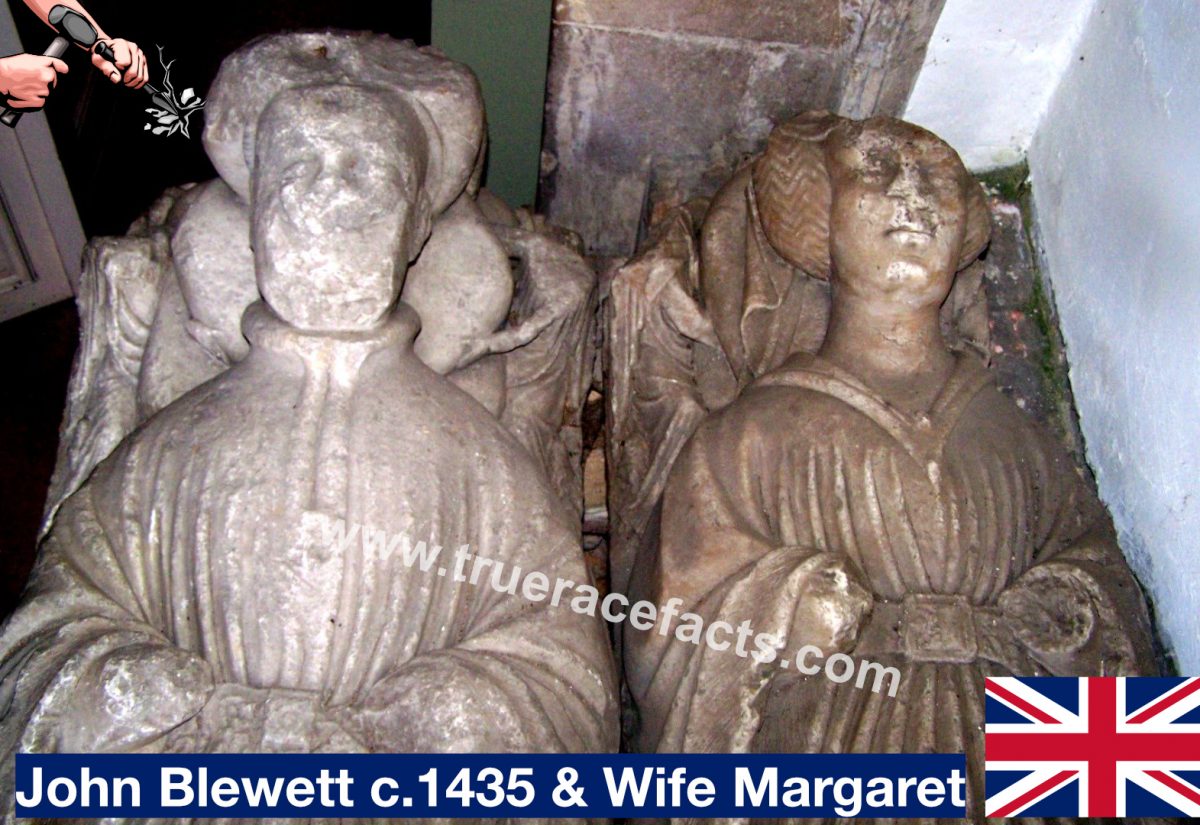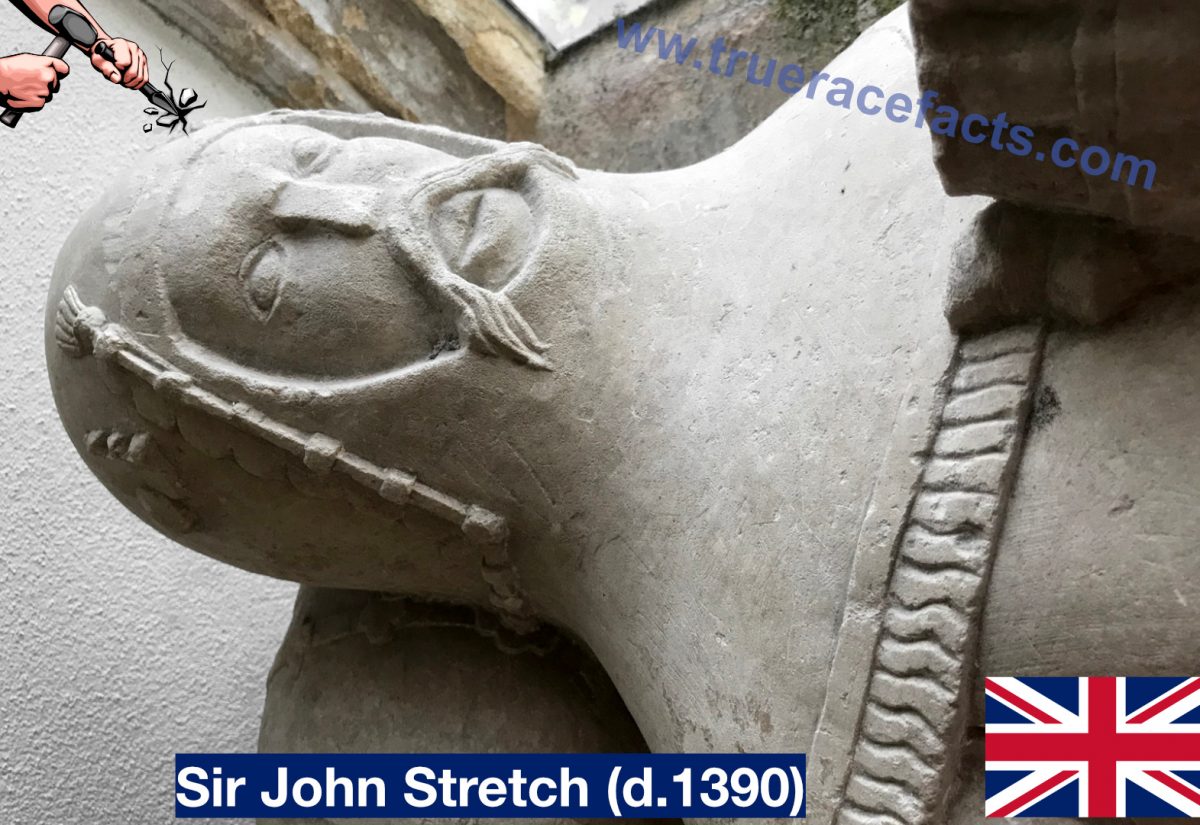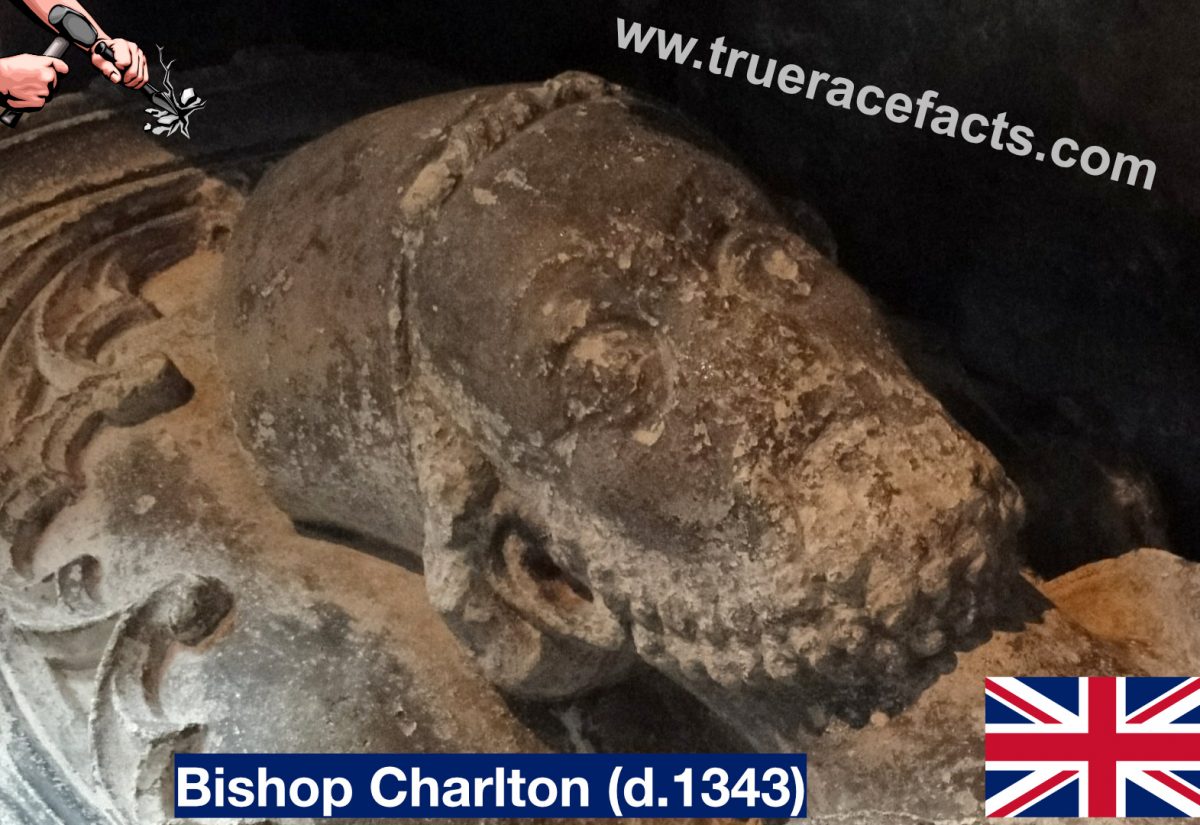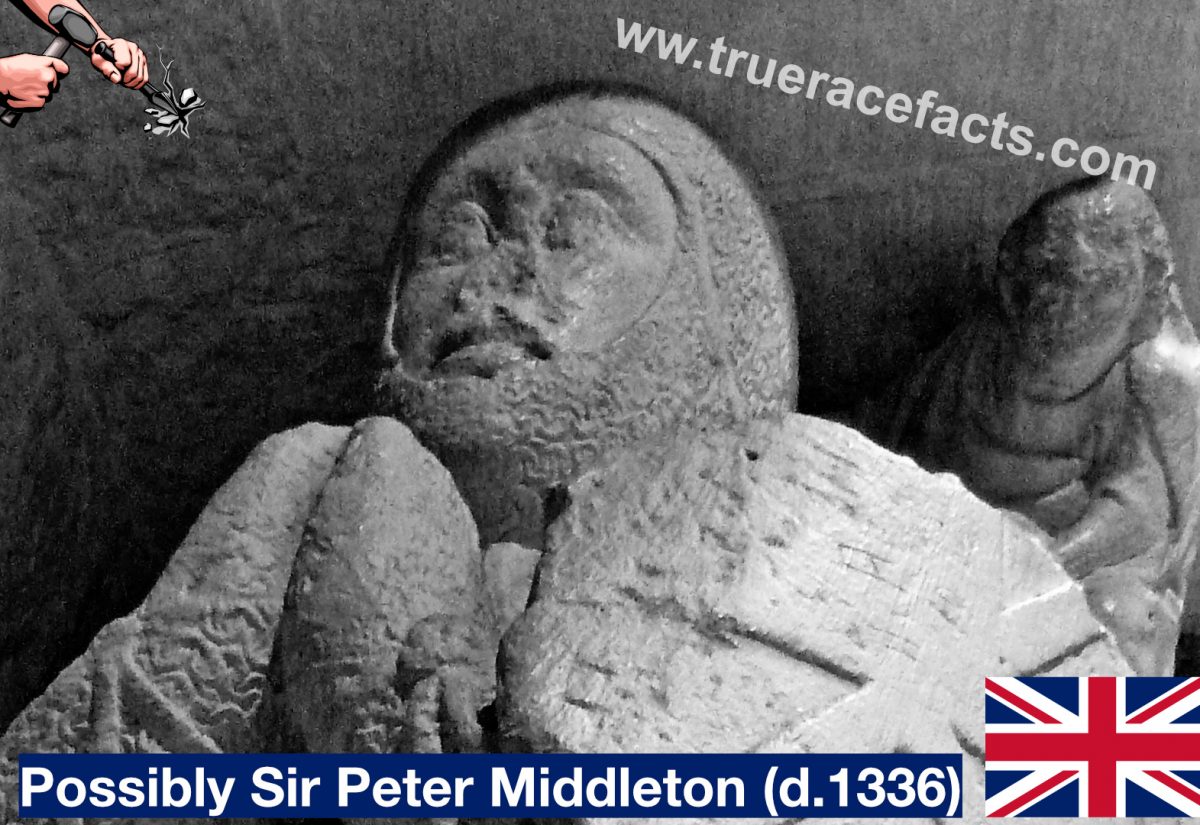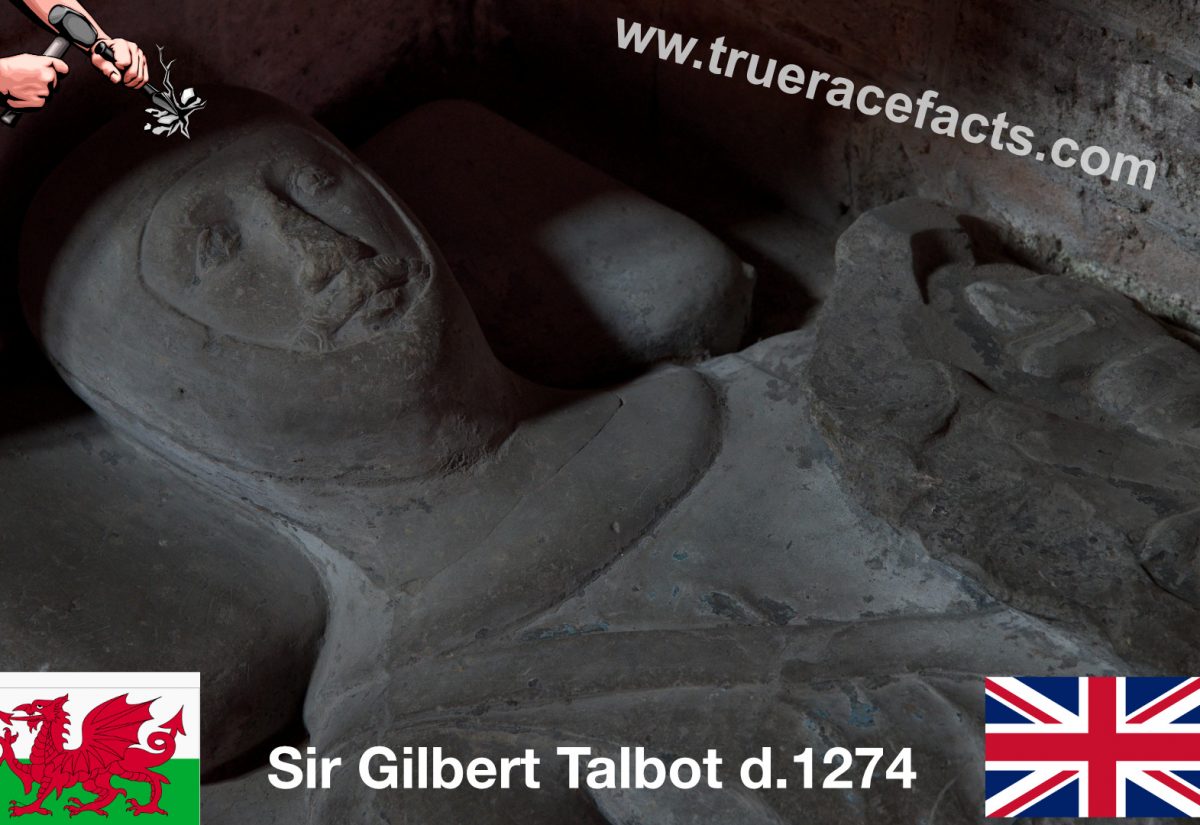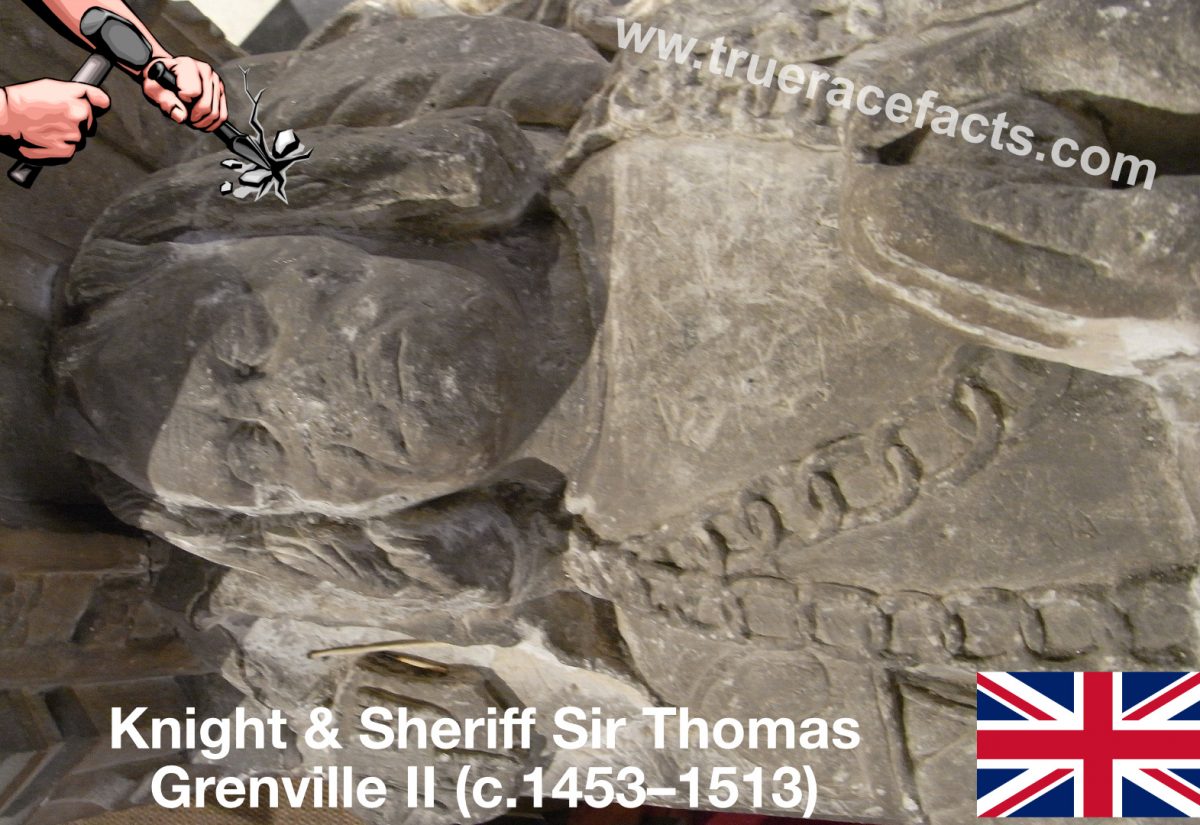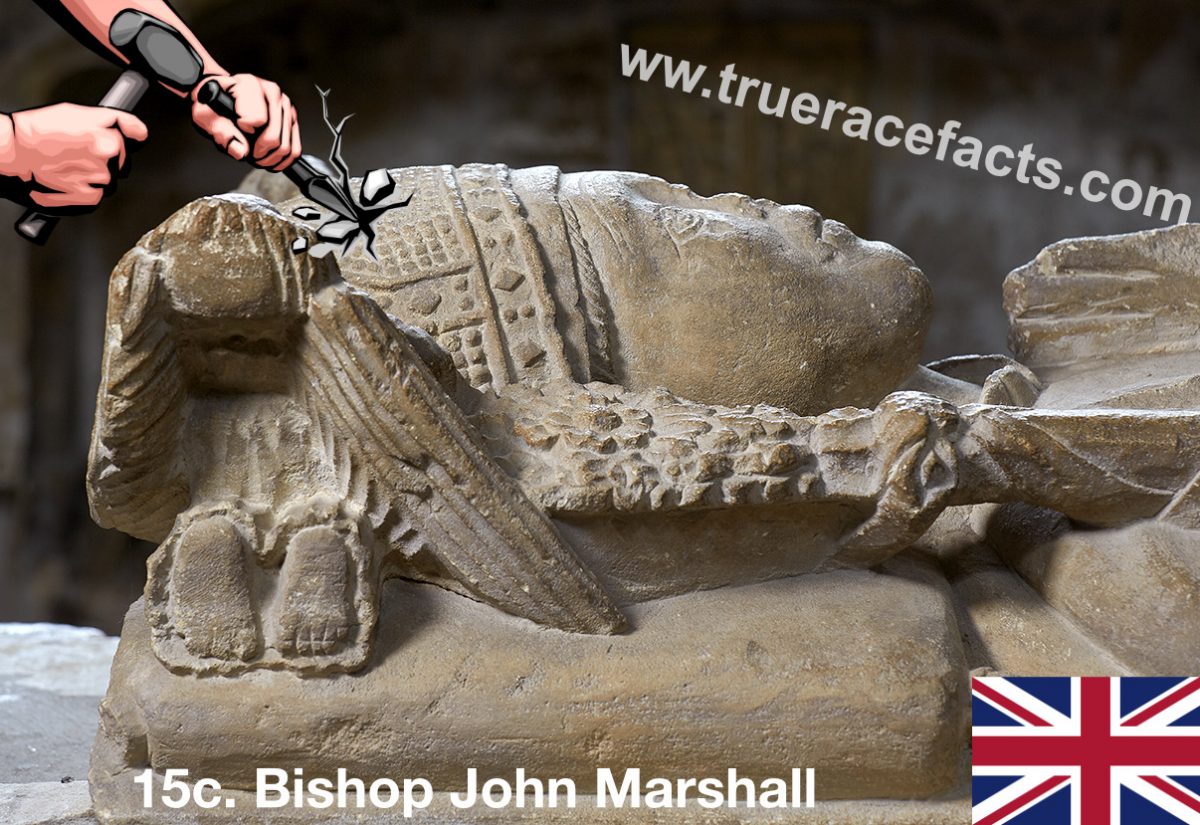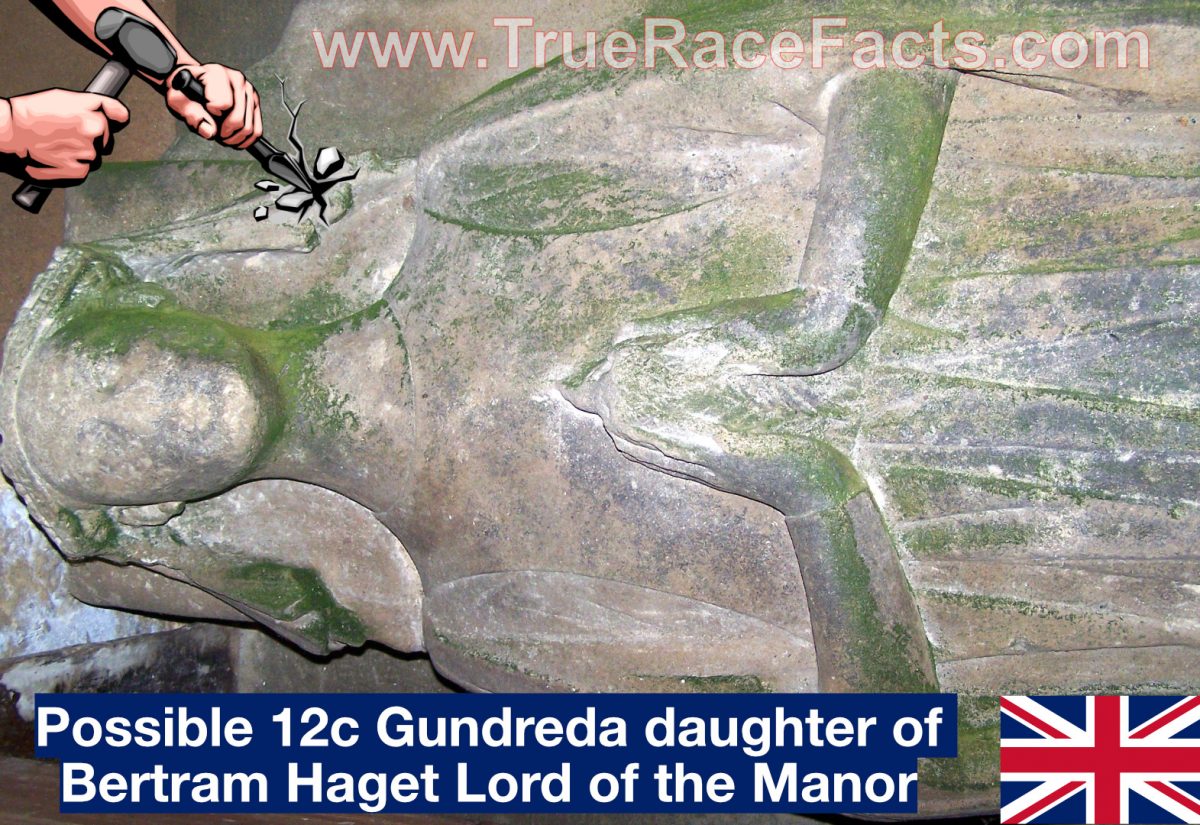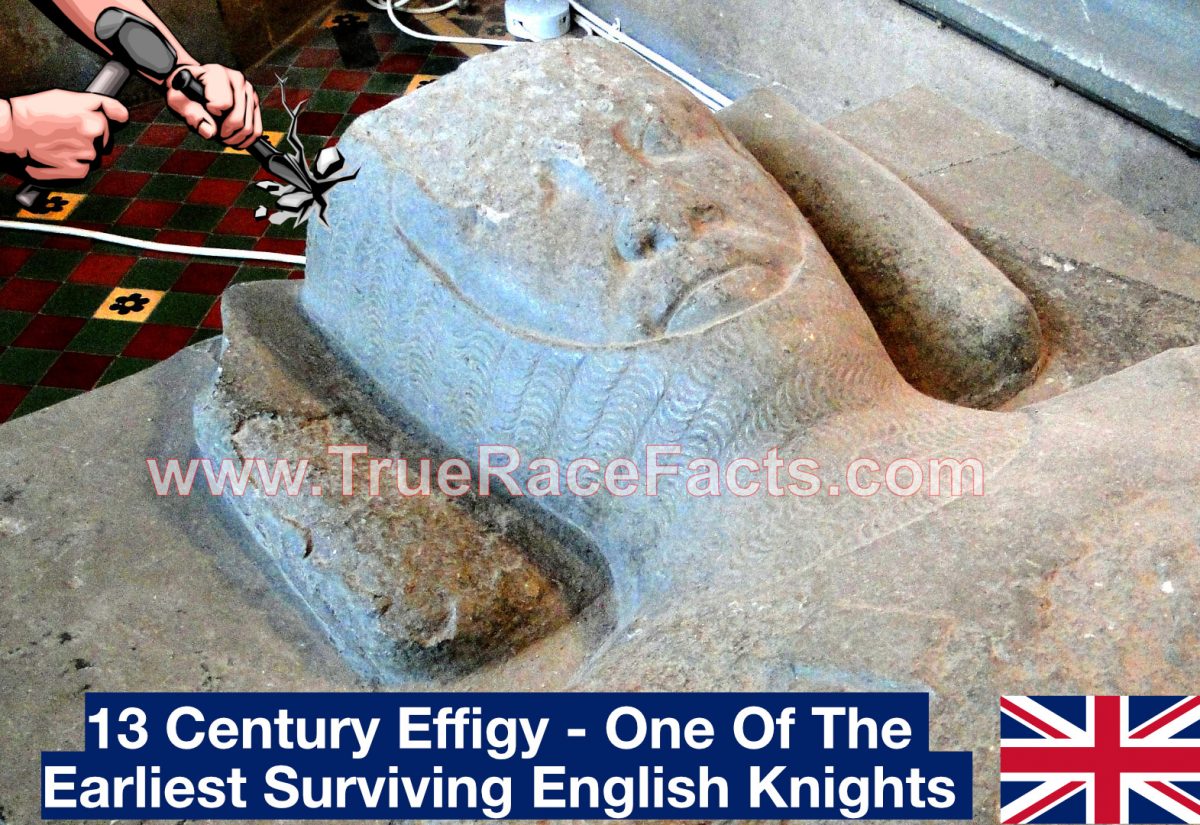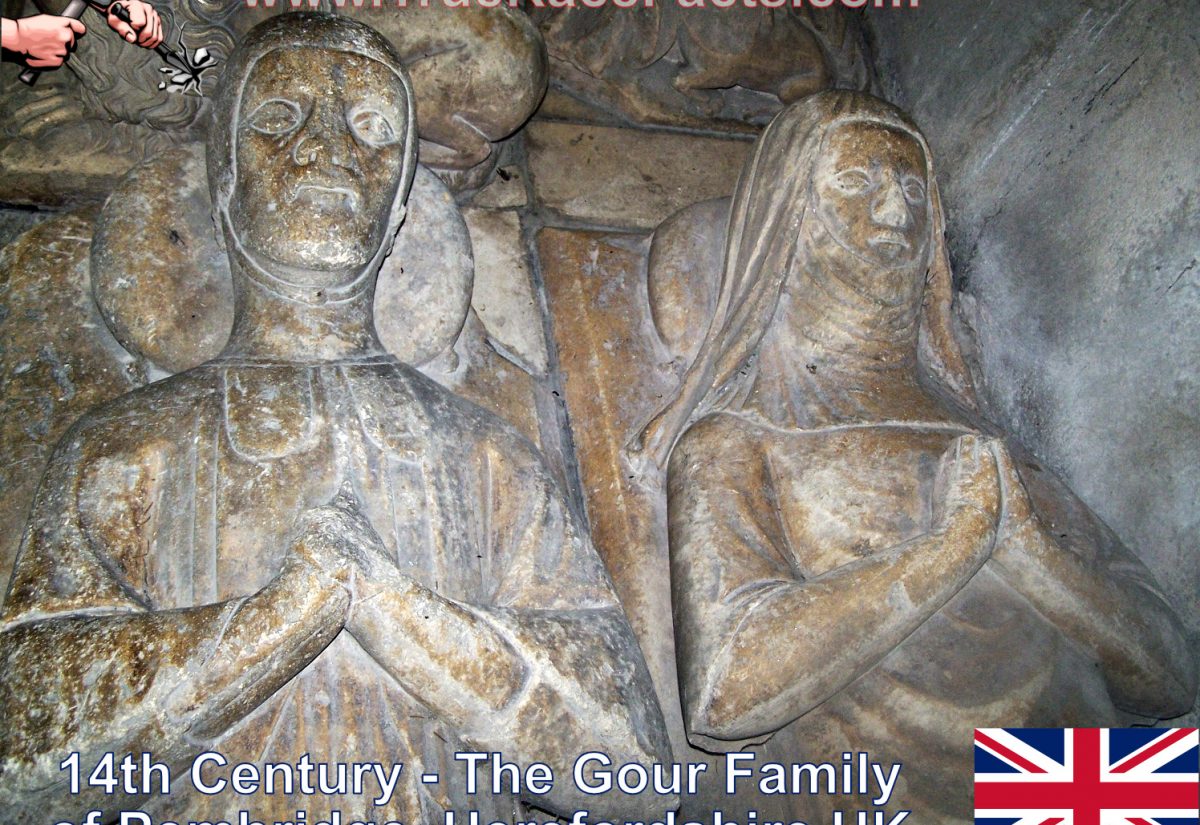The medieval effigy of John Blewett (c.1435) and his wife Margaret in St Mary and St Peter’s Church, Harlaxton, preserves their nobility, lineage, and identity. Though John’s face has been heavily damaged, Margaret’s remains clear, and the lamb at his feet reflects powerful spiritual symbolism tied to faith and belonging.
- Guinevere Jackson
- 7 February 2026
The effigy of Sir John Stretch (d.1390) preserves his armour, posture, and the lion beneath his feet, a symbol of courage, nobility, and Israelite heritage. While the original paint was removed and his nose and lips deliberately filed down, the monument still reveals the likeness of a swarthy (i.e., black) medieval knight. It stands as a testament to status, lineage, and selective erasure in medieval Britain.
- Guinevere Jackson
- 7 February 2026
The effigy of Bishop Thomas Charlton (d.1343) at Hereford Cathedral preserves his long scriptural garment and detailed hair and beard. While the nose and lips were deliberately altered, the monument still reveals the swarthy features of this medieval bishop. It stands as a striking testament to status, identity, and selective erasure in medieval Britain.
- Guinevere Jackson
- 1 February 2026
Inside All Saints Church, Ilkley, a medieval effigy possibly of Sir Peter Middleton (d.1336) preserves a clear nose and lip outline, revealing a swarthy noble likeness. Nearby figures show extreme facial destruction, pointing to selective iconoclasm rather than age.
- Guinevere Jackson
- 25 January 2026
Explore Sir Gilbert Talbot (d.1274), a marcher noble of medieval England whose effigy preserves his lineage, status, and knightly identity through symbolism, armour, and sacred memorial tradition.
- Guinevere Jackson
- 25 January 2026
Discover Sir Thomas Grenville II, K.B. (c.1453–c.1513), Sheriff of Cornwall and West Country noble, whose effigy preserves his rank, lineage, and status despite deliberate alterations to his facial features.
- Guinevere Jackson
- 17 January 2026
Explore Bishop John Marshall (d.1496) of Llandaff Cathedral, a swarthy medieval church leader whose effigy preserves his nobility, sacred office, and enduring identity despite facial iconoclasm.
- Guinevere Jackson
- 1 January 2026
Discover the medieval effigy of the Lady of Bilton, possibly Gundreda (c.1160), daughter of Bertram Haget, whose swarthy features and noble presence endure despite centuries of deliberate defacement.
- Guinevere Jackson
- 1 January 2026
Explore the Malvern Priory Knight, one of England’s earliest surviving military effigies, featuring a rare war-hammer and shield, and revealing the swarthy features of a medieval noble despite deliberate facial alterations.
- Guinevere Jackson
- 31 December 2025
Discover the 14th-century Gour family of Pembridge, Herefordshire, and their medieval knightly effigy, preserving lineage, status, and swarthy features despite deliberate damage to the monument.
